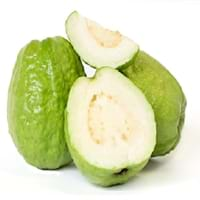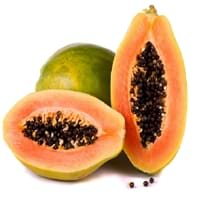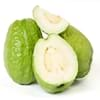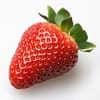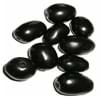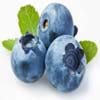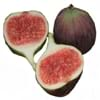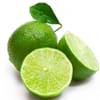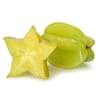Health Benefits
Cancer prevention, Diarrhea treatment, Prevents constipation, Scurvy treatment, Treatment of dysentary
Arthritis prevention, Asthma treatment, Cancer prevention, Heart care, Prevents macular degeneration, Prevents rheumatoid
General Benefits
Controls blood pressure, Cures cough, Improves eye vision, Maintains healthy cholesterol level, Treatment of common cold
Anti-inflammatory properties, Boosts immune system, Digestive aid, Healing of wounds, Maintains healthy cholesterol level, Strengthens bones
Skin Benefits
Anti-aging benefits, Brightens and lightens complexion, Hydrates skin, Treatment of skin diseases
Anti-aging benefits, Hydrates skin, Skin revitalization, Treatment of acne, Treatment of dark spots
Hair Benefits
Prevents hair loss
Good conditioner, Promotes longer and healthier hair, Softening mask, Treatment of dandruff
Allergy Symptoms
Breathing difficulty, Coughing, Runny nose, Sneezing, Swelling of mouth, tongue or lips, Wheezing
Abdominal pains, Carotenemia on excessive consumtion, Latex Allergy
Side Effects
Hair thinning, Nail thinning, Skin problems, Tooth decay, Weakness, Possibly unsafe during pregnancy
Allergic reaction, Skin problems, Possibly unsafe during pregnancy
Best Time to Eat
As a snack in the late afternoon, Don't consume at night and before bed, Eat the fresh ones, avoid mixing with any other foods, don't eat after meal., Morning time (before lunch)
As a snack in the late afternoon, Don't consume at night and before bed, Don't eat after meal
Vitamin B5 (Pantothenic Acid)
Vitamin C (Ascorbic Acid)
Vitamin K (Phyllochinone)
Calories in Fresh Fruit with Peel
Not Available
Calories in Fresh Fruit without Peel
Not Available
Calories in Frozen Form
Not Available
Type
Tree fruit, Tropical
Melon, Tree fruit
Season
All seasons
All seasons
Varieties
Lucknow 49, Allahabad Safeda, Chittidar, Harijha, Apple guava, Hafshi, Arka Mridula and Allahabad Surkha
Coorg Honey Dew, Pusa Dwarf, Pusa Giant, Pusa Majesty, Pusa Delicious, Pusa Dwarf, Solo, Ranchi, Taiwan-785 and Taiwan-786
Color
Green, Pink, Yellow
Orange, Yellow
Inside Color
White
Orange
Taste
Sweet-Sour
Luscious, Sweet
Origin
Central America, Mexico, South America
Mexico, Central America
Soil Type
Loam, Rocky, Sandy
Rocky, Sandy, Well-drained
Climatic Conditions
Sunny
Warm, Without frosts
Facts about
- The black pigment in Guava leaves is used for textile applications.
- Guava leaves are used to make tea.
- Oils extracted from guava seeds are used in various cosmetics.
- Guava wood is used for decorative purposes.
- Papaya seeds show contraceptive effects in male monkeys.
- Their seeds are used as a replacement for black pepper in some nations due to peppery taste.
- Papaya is known by funny names like paw paw or papaw and the mamao.
Other Countries
China, Indonesia, Mexico, Nigeria, Pakistan, Philippines, Thailand
Brazil, Indonesia, Mexico, Nigeria
Top Importer
Canada
United States of America
Top Exporter
India
Mexico
Botanical Name
Psidium guajava
Carica papaya
Synonym
Not Available
Not Available
Subkingdom
Tracheobionta
Tracheobionta
Division
Magnoliophyta
Magnoliophyta
Class
Magnoliopsida
Magnoliopsida
Subclass
Rosidae
Dillenhidae
Order
Myrtales
Brassicales
Family
Myrtaceae
Caricaceae
Species
Psidium guajava
C. papaya
Generic Group
Myrtle
Papaya
Difference Between Guava and Papaya
We might think that Guava and Papaya are similar with respect to nutritional value and health benefits. But the nutrient content of both fruits is different. Guava and Papaya Facts such as their taste, shape, color, and size are also distinct. The difference between Guava and Papaya is explained here.
The amount of calories in 100 gm of fresh Guava and Papaya with peel is 68.00 kcal and Not Available and the amount of calories without peel is Not Available and 43.00 kcal respectively. Thus, Guava and Papaya belong to Low Calorie Fruits and Low Calorie Fruits category.These fruits might or might not differ with respect to their scientific classification. The order of Guava and Papaya is Myrtales and Brassicales respectively. Guava belongs to Myrtaceae family and Papaya belongs to Caricaceae family. Guava belongs to Psidium genus of Psidium guajava species and Papaya belongs to Carica genus of C. papaya species. Beings plants, both fruits belong to Plantae Kingdom.
